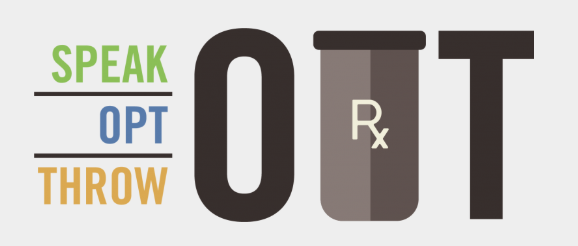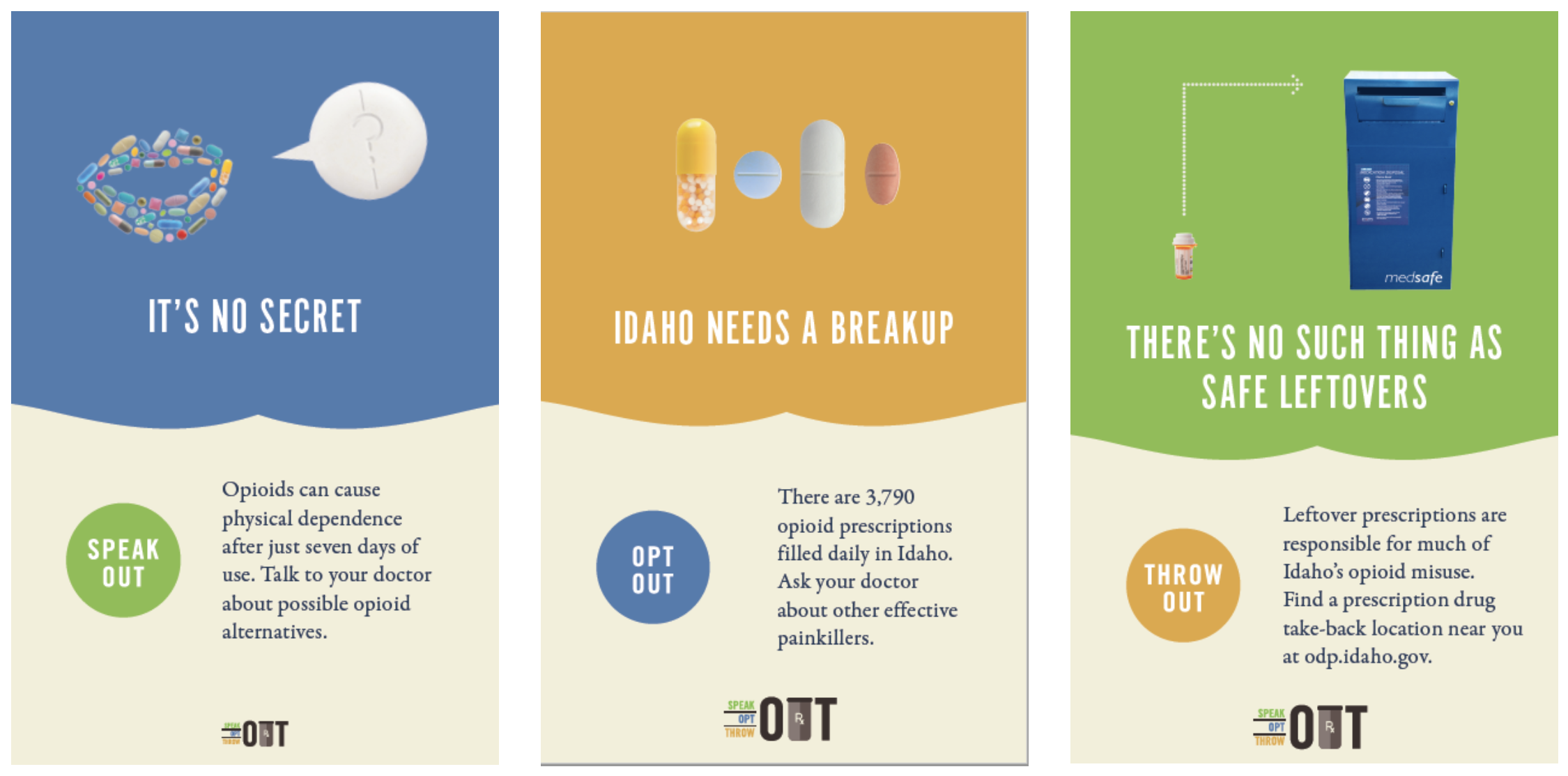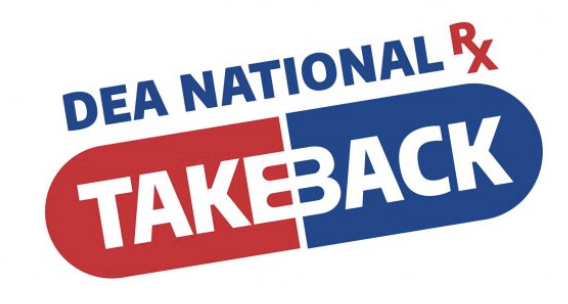
Mental Health First Aid
More below:
Resources | Cont. Education Units | Follow Up | Liability Protection
Mental Health First Aid Training Resources
Evidence-based Training: SPRC, Now is the Time
This is a collection of some of the most common resources that come up during the MHFA and YMHFA trainings. To add or correct resource on this list, please email us so that we can address the issue: info@thespeedyfoundation.org.
National Resources
Safety Planning
Adverse Childhood Experiences: "Paper Tigers" & "Resilience" films
Harm Research Institute - Classification for Suicidality Disorders
health care resources
Opioid Epidemic resources
NARCAN training video - Instructions for administration of NARCAN
Idaho
Order materials for your organization:
Prescription Opioid Misuse Prevention “Speak Out, Opt Out, Throw Out” Campaign
Substance Abuse & Mental Health Services Administration - order free materials
Liability Information for Utah and Idaho (scroll to bottom of this page)
Idaho Resources
American Foundation for Suicide Prevention (AFSP) - Idaho Chapter
Order Materials for your Organization
Idaho Suicide Prevention Hotline - Alex McNish - email: amcnish@jannus.org
Idaho’s Suicide Prevention Print Materials - The Idaho Department of Heath and Welfare have a number of publications available to individuals, health care professionals, and others who care for people with chronic diseases. These materials can be ordered free of charge by selecting the quantity of each material you would like and completing a check out process.
Substance Abuse & Mental Health Services Administration - order free materials
Utah Resources
Faith-based Resources
Rural Resources
Youth & Higher Education resources
Parent's Guide to Reduce Your Childs Risk of Depression & Anxiety (Australia)
Parent's Guide to Reduce Your Teens Risk of Depression & Anxiety (Australia)
Free Suicide Prevention Training for Youth, Parents, & Educators - Jason Foundation
LGBTQ Resources
Older Adult Resources
Veteran Resources
immigrant and refugee Resources
Grief & Trauma
After a Loss
Book Store
Lethal Means Restriction
Marketing Resources
Non-Suicidal Self-Injury
Self-care & compassion fatigue
Continuing Education Credits
Below is a syllabus with training agenda & learning objectives. Following the completion of the 8-hour course, you will have your certificate of completion. You should be able to turn in these materials to receive CEU's at each of your regulatory offices: nurses, social workers, law enforcement, teachers, etc. This course should allow for 8 hours of general CEU's. Please email us if you run across issues as we would love to streamline this process for future First Aiders. (info@thepseedyfoundation.org)
Follow Up
Following a MHFA or YMHFA Training, have you had the chance to apply ALGEE in your home or community? We'd love to hear more about the ways in which MHFA has made an impact. Please share by clicking the button below.
“I learned a great deal on how to approach kids vs. adults and have a better understanding of the common issues facing youth.”
““The positive impact that Mental Health First Aid has had in schools is clear. The training helps teachers and administrators recognize certain mental health challenges that many of their students face. David explained that the training is especially useful to bridge the gap between schools and other community resources that could treat and support a student who is experiencing a mental health issue.””
“I have a much changed outlook on the need to know what to look for and how to help someone.”
“Based on this training and the experience I already have, this added more tools to my tool belt.”
“Role playing and actually using the words you’d use was a strength of this course. It’s totally different when you actually have to say it out loud.”
Liability Protection
Legal Liability for First Aiders
First Aiders who have completed the program are by no means required to act on their knowledge – but have simply been provided with information on how they may be able to do so. Good Samaritan Laws cover help provided by First Aiders out in the community, although the details and extent of this law vary by state and should not be used across the board. (Updated 8/19/18)
Idaho - House Bill 601
IMMUNITY OF PERSONS GIVING EMERGENCY FIRST AID FROM DAMAGE CLAIM. That no action shall lie or be maintained for civil damages in any court of this state against any person or persons, or group of persons, who in good faith and without compensation, being at, or stopping at the scene of an accident or emergency, offers and administers emergency first aid or emergency medical attention to any person or persons injured in such accident or emergency unless it can be shown that the person or persons offering or administering emergency first aid or emergency medical attention, is guilty of gross negligence in the care or treatment of said injured person or persons or has treated them in a grossly negligent manner. The immunity described herein shall cease upon delivery of the injured person to either a generally recognized hospital for treatment of ill or injured persons, or upon assumption of treatment in the office or facility of any person undertaking to treat said injured person or persons, or upon delivery of said injured person or persons into custody of an ambulance attendant.Utah - 78B-4-501 Good Samaritan Act
(1) A person who renders emergency care at or near the scene of, or during an emergency, gratuitously and in good faith, is not liable for any civil damages or penalties as a result of any act or omission by the person rendering the emergency care, unless the person is grossly negligent or caused the emergency. As used in this section, "emergency" means an unexpected occurrence involving injury, threat of injury, or illness to a person or the public, including motor vehicle accidents, disasters, actual or threatened discharges, removal, or disposal of hazardous materials, and other accidents or events of a similar nature. "Emergency care" includes actual assistance or advice offered to avoid, mitigate, or attempt to mitigate the effects of an emergency. (2) A person who gratuitously, and in good faith, assists governmental agencies or political subdivisions in the activities described in Subsections (2)(a) through (c) is not liable for any civil damages or penalties as a result of any act or omission unless the person rendering assistance is grossly negligent in: (a) implementing measures to control the causes of epidemic and communicable diseases and other conditions significantly affecting the public health, or necessary to protect the public health as set out in Title 26A, Chapter 1, Local Health Departments; (b) investigating and controlling suspected bioterrorism and disease as set out in Title 26, Chapter 23b, Detection of Public Health Emergencies Act; and (c) responding to a national, state, or local emergency, a public health emergency as defined in Section 26-23b-102, or a declaration by the President of the United States or other federal official requesting public health-related activities. (3) The immunity in Subsection (2) is in addition to any immunity or protection in state or federal law that may apply.Immunity for Calling 911 or Seeking Emergency Medical Assistance – Good Samaritan Laws - To encourage people to seek out medical attention for an overdose or for follow-up care after naloxone has been administered, in 2017, 40 states and the District of Columbia have enacted some form of a Good Samaritan or 911 drug immunity law. These laws generally provide immunity from arrest, charge or prosecution for certain controlled substance possession and paraphernalia offenses when a person who is either experiencing an opiate-related overdose or observing one calls 911 for assistance or seeks medical attention. State laws are also increasingly providing immunity from violations of pretrial, probation or parole conditions and violations of protection or restraining orders.
These laws often require a caller to have a reasonable belief that someone is experiencing an overdose emergency and is reporting that emergency in good faith. Good faith is often defined to exclude seeking help during the course of the execution of an arrest or a search warrant. Some laws also specify that immunity for covered offenses is not ground for suppression of evidence of other crimes. Other requirements frequently include remaining on scene until help arrives and cooperating with emergency personnel when they arrive.
Opiate Antagonist Act - Specifies how opioid antagonists may be prescribed and administered in certain circumstances. Provides for prescriber immunity from civil, administrative, or criminal prosecution.
Legal Liability for mhfa Instructors
Instructors are not required by Mental Health First Aid USA to carry any particular liability insurance at this time. Any questions about liability coverage for instructors should be directed to an instructor’s legal advisor or insurance carrier.







